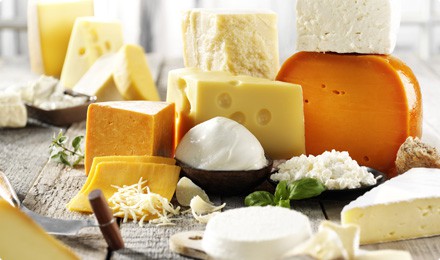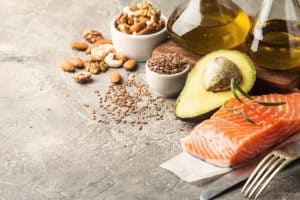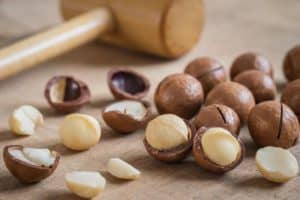If you have been on a Keto diet or are thinking of starting and are wondering if consuming dairy will be accepted or not, then this is for you. Going on a diet is a major lifestyle change. It is something very new to your body and for this reason, it can often be overwhelming. Now that you have decided to go for the Keto Diet you might as well be missing some of your favorite foods.
Well, not entirely because the Keto Diet has alternatives for everything. Snacks? You got it! Drinks? You got it! Recipes? You got them all! One thing you might be concerned about right now is dairy products.
The answer to that is low-carb dairy! Yes, you can have dairy on keto, in a controlled way of course. Always keep an eye on your macros. Keeping your macros in check is essential for success on a keto diet. Before consuming dairy products on the keto diet, be sure to check their macronutrient composition.
Now you wonder what other dairy products are. Well, guess what? Well, guess what? You can even have dairy on Keto! Yes, you read that right. You can satiate your necessary dairy products on the Keto Diet, in a controlled way of course.
We’ve compiled a list of some substitutes that may work well on your ketogenic diet while rewarding your taste buds!
What Is Dairy?
Foods and drinks made from mammalian milk are referred to as dairy products. Dairy made from cow’s milk is much more popular than the other varieties. Goat and sheep dairy products, however, are also highly well-liked in various cultures.
Protein, fat, and carbs are all present in milk, making it a relatively nutrient-dense diet.
Casein and whey are the two primary proteins found in milk. Casein and whey together make up around 80% of the protein in milk.
Milk is primarily made up of saturated fats. 70% of dairy fats are saturated, 25% are monounsaturated, 2.5% are polyunsaturated, and 2.5% are trans fats that are present naturally.
The type of carb present in milk is called lactose (milk sugar). It transforms into the simple sugars galactose and glucose in your digestive system. After then, glucose enters your system and raises your blood sugar levels.
Cream, cheese, butter, and yogurt are dairy products manufactured from milk, and their carbohydrate amounts vary greatly.
Benefits Of Consuming Dairy On A Keto Diet
There are many benefits to including dairy into a low-carb diet:
Many Dairy Products With Low Carbs Are Also Strong In Protein
It’s crucial to get enough protein for healthy health. Including dairy protein in your diet will help you feel satisfied and may even slightly increase your metabolic rate, which will make it simpler to lose weight and keep it off in the long run. Additionally, diets with more protein and dairy products have promise for promoting muscle growth and fat loss.
The majority of hard and soft cheeses, which have a protein content of 6 to 8 grammes per ounce (30 grammes) or 18 to 25 grammes per 100 grammes, are good choices for protein.
Which cheese contains the most protein? Parmesan is the winner in this contest because it has an amazing 35 grammes of protein per 100 grammes of cheese.
Greek yoghurt has a decent amount of protein as well, with many brands offering 15 to 18 grammes every 175 gramme (34 cup) container.
Important Vitamins And Minerals Are Provided By Dairy
Yogurt and cheese both contain significant amounts of zinc, vitamins B6 and B12, vitamin K2, and vitamin A.
Although some varieties of dairy products have more calcium than others, dairy products are known for being a great source of the mineral. It has been demonstrated that consuming dairy products that are high in calcium lowers the incidence of bone fractures.
Hard cheeses have the highest calcium content, with Parmesan having roughly 1,000 mg per 100 grammes, Swiss having 720 mg, and cheddar having 790 mg.
However, yoghurt and all varieties of cheese still contain respectable levels of this crucial mineral. Decide which dairy products you want to consume. Calcium is also present in non-dairy foods.
Consuming Dairy Products Is Associated With Excellent Health
Butter, cream, and cheese have all been suggested to be consumed in moderation during the past few decades since they are high in saturated fat, which has been linked to an increased risk of heart disease.
However, the majority of the data to date suggests that this prescription was mainly unnecessary.
In reality, high-fat fermented dairy foods like yoghurt and cheese appear to have no discernible effects on heart health and may even lower the chance of developing heart disease.
Conjugated linoleic acid, a naturally occurring trans fat that may enhance cardiovascular risk factors, is also present in full-fat dairy products. More research is necessary to verify this favourable link, though.
Milk Is Scrumptious And Filling
There is no doubting the deliciousness of many dairy products, and they can even enhance the flavour of other dishes. For instance, adding butter or a cream sauce to veggies or lean steak will significantly improve the flavour and palatability of your meal.
Anyone who doesn’t enjoy broccoli or spinach, in my opinion, probably hasn’t had them properly fried in butter and sprinkled with real salt. Cheese is not only tasty, but it may also be incredibly satisfying. In a study, cheese was found to be more effective than cream or whipped cream at reducing appetite and causing the production of “fullness hormones.”
Low-Carb Dairy Products You Can Enjoy On A Keto Diet
-
Butter
Butter is an ideal fat source for the keto diet. Indeed, it contains no carbohydrates and about 11 grams of fat per tablespoon. If you’re determined to incorporate the butter into your keto lifestyle and honestly, why shouldn’t you be? we recommend buying high-quality butter that is higher in omega-3 fatty acids, an essential and healthy fat for your body and brain.
-
Hard Cheeses
Cheese gets the green light on the keto diet. But if you’re worried about your lactose intake, you’ll have to try harder. Cheeses like Parmesan, one tablespoon of which contains less than one gram of carbohydrates.
Even semi-hard cheeses like Swiss, which have less than two grams of carbs per cup of shredded cheese, are keto-friendly. Melt semi-hard cheese over eggs for breakfast and that’s it.
Request a callback!
-
Soft Cheeses
While yes, hard cheeses are lower in carbs than soft cheeses, that doesn’t mean all soft cheeses aren’t on the table.
Brie cheese, for example, contains less than one gram of carbohydrates per ounce. Mascarpone and crème Fraiche are also good options because they give you lots of extra flavor and creaminess for very few carbs.
-
Whipping Cream
Milk isn’t a great option on the keto diet. Whole milk has 12 grams of carbs per cup, and low-fat or skim milk has even more. Cream, on the other hand, whipping or whipped is doable on the keto diet. It is a high-fat, low-carb food, so it can be eaten on the keto diet.
One thing to keep in mind: if it’s whipped cream you’re looking for, it might be best to whip it yourself. A cup of whipped stuff has less than four grams of carbs and just over 43 grams of fat. Like most store-bought versions, add sugar.
To do that, Take heavy whipping cream, a mixing bowl, and a hand mixer, and whisk until the cream becomes fluffy. Add a pinch of pure vanilla extract for some flavor.
-
Cream Cheese
Another keto-friendly food is cream cheese. As long as you don’t spread it all over a bagel. But, at just one gram of carbs per ounce. You can enjoy a bit spread on celery stalks or halved strawberries. If you’re feeling creative, you can add it to any sauce to make it a bit creamier.
-
Cottage Cheese/Paneer
As long as it doesn’t contain unnecessary sugars and carbohydrates, cottage cheese or paneer is a great source of healthy fats and, with only 5 grams of carbs per 100 grams, is a low-carb, high-fat food for your ketogenic lifestyle.
Paneer is a soft Indian cheese and is great for Keto. Plus all the vegetarians out there can prepare their favorite keto recipes using this main ingredient which is a dairy product too!
-
Sour Cream
Although the flavor of sour cream may resemble that of Greek yogurt, there are almost no carbs in sour cream, so it\’s a much better option. Sour cream is produced by fermenting regular cream with certain types of lactic acid bacteria.
You probably don’t want to include nuts and berries in a bowl of sour cream in the morning like yogurt, but you do. It gives a creamy texture perfect for dips, and sauces and to use as a low-carb dressing for taco soup, for example.
-
Greek Yogurt
Many varieties on the market are packed with unnecessary added sugars. These highly processed products are often also filled with artificial preservatives and flavors. For these reasons, it is very difficult to find a good keto option. You will need to observe labels here and do your homework. Look for unflavored, full-fat yogurt and kefir.
Whenever the fat gets removed, as with 1% or 2% varieties, you can bet that added sugars are taking their place. And the same thing goes for plain, unflavored, full-fat Greek yogurt. If you can find one that has less sugar per serving, you may get 18g of protein and 10g of fat.
-
Ghee
Ghee is clarified butter. Here the butter has been cooked longer to remove the water and milk solids. The remaining mixture is pure butterfat and is ideal for any keto dieter. It has 2g more fat than butter for 25 more calories and still zero carbs.
Unlike butter, ghee is easy to make at home. You can purchase high-quality, grass-fed butter and melt it in a pot on your stovetop. It is easily digestible and readily available as an energy source in your body, so you may sneak into ketosis faster.
The one question that we get a lot is, “I love having milk, do I have to leave it on Keto?”
Request a callback!
Kinds Of Milk Allowed On Keto
Milk and milk substitutes are flavorful drinks and key ingredients in a lot of recipes. Still, you may feel whether you can drink them on the keto diet. As you know, the keto diet is a low-carb, high-fat, and moderate-protein diet.
While on a keto diet, most people should limit their carb intake to around 25–30 grams of net carbs per day. Therefore, for milk to be keto-friendly, it needs to be low in carbs. Although some kinds of milk are not keto-friendly while many varieties are compatible with a keto diet.
These are fewer in carbs and can be fully implemented into your diet. There might be a slight change in the taste because it isn’t the same but in order to be in ketosis, these can help to satiate your milk hunger.
-
Almond milk
The most extensively used milk in keto is almond milk. It’s easily accessible and inexpensive, sold at most grocery stores, and relatively low in carbs, and contains only 1 gram of net carbs per cup (240 mL).
-
Coconut milk
Coconut milk is also a good option for keto, but some brands contain up to 5 grams of net carbs per 1 cup (240 mL) serving. As this is one-fifth of the everyday carb requirement for keto, it should be used accordingly.
-
Macadamia Nut Milk
Macadamia nut milk is more expensive than other keto-friendly kinds of milk, but it’s the lowest in carbs. One cup (240 mL) contains 1 gram of fiber and 0 net carbs.
-
Flax Milk
This milk is made from flax seeds and is high in anti-inflammatory omega-3 fats. One cup contains only 1 gram of net carbs.
-
Soy Milk
Unsweetened soy milk contains 1 g fiber and 3 g net carbs per cup (240 mL). Plus, it provides 7 grams of protein.
-
Cashew Milk
Cashew milk contains only 2 g net carbs per cup (240 mL).
-
Pea Milk
Peas ( as a legume) are naturally high in protein, and pea milk boasts 8 grams of protein and 2 grams of net carbs per 1 cup (240 mL).
-
Half-and-half
Half-and-half is a mixture of whole cow’s milk and heavy cream. It contains only 1 gram of net carbs per 30ml and is a good substitute for cow’s milk in coffee and cooking.
Miks To Avoid On Keto
-
Cow’s Milk
Cow’s milk contains lactose or milk sugar. This includes ultra-filtered milk, evaporated milk, and raw cow’s milk. One cup (244 mL) of 2% milk contains 12 grams of net carbs.
-
Oat Milk
Oat milk is made from oats, which are naturally high-carb. This makes oat milk inappropriate for keto. 240ml of milk provides 17 grams of net carbs.
-
Rice Milk
Like oats, rice is also carbs-rich, making rice milk a higher-carb milk choice, too. 240 ml contains 21 grams of net carbs.
-
Sweetened Condensed Milk
Condensed milk contains high portions of added sugar and is used for making decadent desserts. Due to its high sugar content, you shouldn’t use it while on keto. One cup (240 mL) contains a whopping 165 grams of net carbs.
-
Goat’s Milk
Similar to cow’s milk, goat’s milk contains natural sugars that make it too high in carbs to be keto-friendly. One cup serving provides 11 grams of net carbs.
Just make sure that the dairy products you consume have higher fat content. As long as you have no allergies or sensitivities, whipped or sour cream, yogurt, full fat, paneer, rich cheese, grass-fed butter, and ghee can all be part of your nutritional keto diet.



















